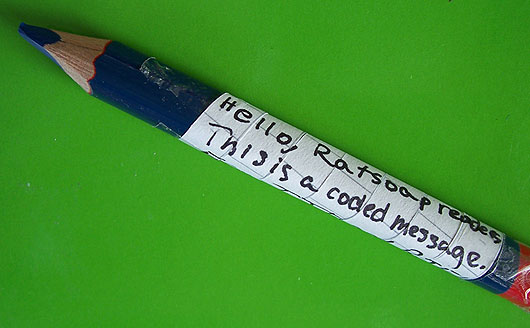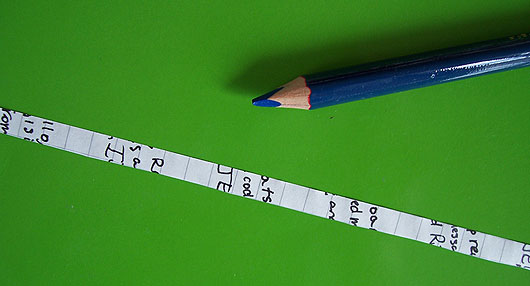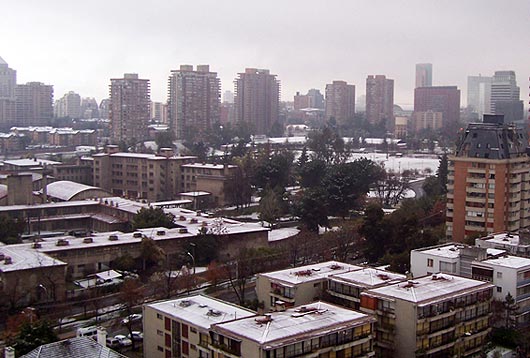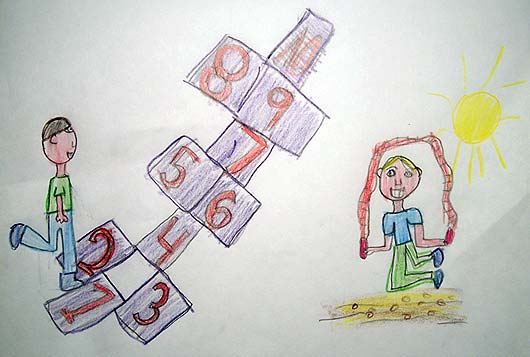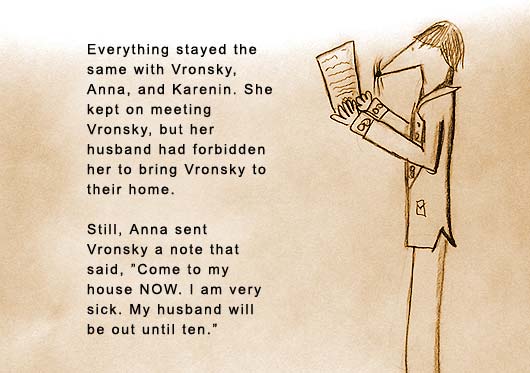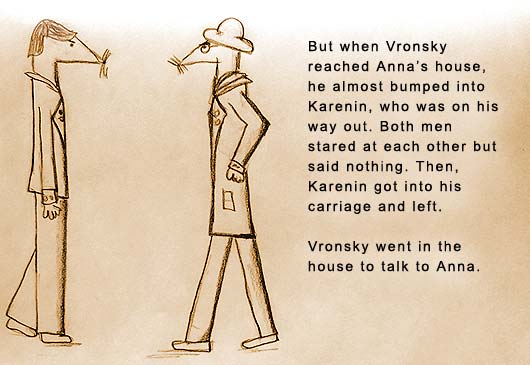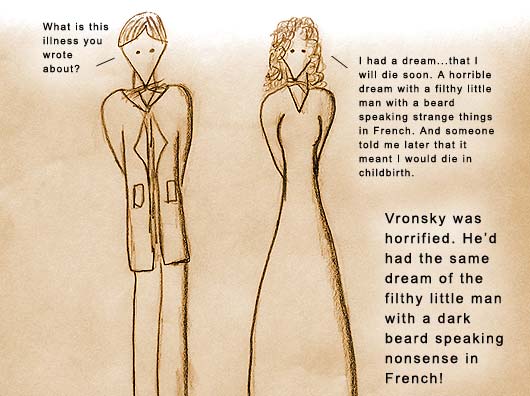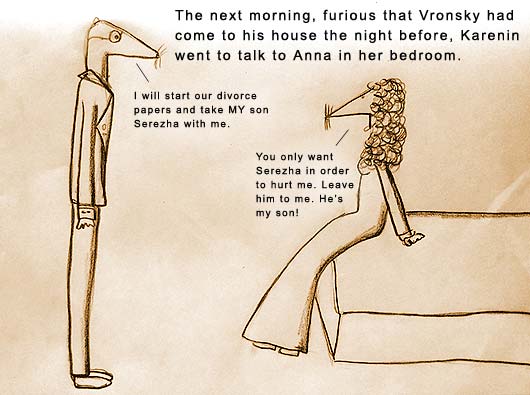HOME - INTRODUCTION - CAST
Cryptography In Language and Communication class, we have been learning about cryptography---a way to communicate with coded messages. Sometimes RJE and I like to play spies and make up secret codes and wear sunglasses and spy outfits, but we have never come up with a good way to make our messages secret so no one can read them. Now I've learned a few ways. One very old one is to wind a strip of paper on a stick, then write a message on the paper.
Then, the message (the strip of paper) is sent---without the stick.
The person who receives the message has to wind the strip of paper on a stick of the very same size (diameter) as the first one. Otherwise, the letters don't fall in the right place to make the words. Dad told me of another cool way that writers used during World War II. For this method, both the person writing the message and the one receiving it need to have a copy of the same book. The writer of the message writes a long list of numbers instead of words. For example, the first "letter" of his message is 40-2-8. The number 40 stands for the page of the book, the 2 for the line on that page, and the 8 for the place on that line where the letter is found. So: Page forty, second line, eighth letter. Here is a small message I wrote that people who have the American edition of "Harry Potter and the Deathly Hallows" can decipher. See if you can figure it out: 51-1-3, 65-4-6, 64-12-6, 241-8-19, 626-19-11. When counting for the letter, you have to count blank spaces, quotation marks, periods, commas---everything. Talking about Harry Potter, I finished the book! It is a great one, and I hope J. K. Rowling writes another series about wizards and witches and muggles. ---------------------- In Virginia, we always get at least one snowfall every winter. In Santiago, it hasn't snowed for eight years. But finally...we woke up one morning last week and there was snow! Well, hardly.
When we walked to school, children were playing in the snow (mostly on the grass), throwing snowballs, and even saving it in bags, thinking they would be able to take it home with them. It was very little snow, and most of it melted before lunchtime. Unfortunately, they didn't let us play in it at school. But after classes, I went to my friend's house. She lives uphill, where more snow fell, and we had a great time all afternoon coming down a small hill on a snowboard. The snow was so unusual in Santiago that many people decided to stay home and not go to school or work. In my class, there were only 14 of 36 students that day. And in RJE's class, only 7 of 21. We didn't do anything all day but watch movies. ---------------------- In my class, few boys play with girls, but sometimes they do talk to each other. RJE's class is different. The boys seem to play with the girls a lot. The other day, I was watching some boys from her class playing hopscotch with the girls, and the girls didn't care! Here's a drawing RJE did of two boys in her class:
Mom said she'd never seen boys playing hopscotch. Dad said that when he was a boy in Santiago, boys would have NEVER played hopscotch---with or without girls. ---------------------- I remember a few years ago in computer class in Virginia when we had to do a PowerPoint presentation. Mine was about Chile, and Dad helped me to record my voice on it. I talked about the Santa Lucía Hill and other places and foods of Chile. Now, in my science class, I had to work on a slide presentation about hydroelectric power. We had to do it as a group of three students, and we met in my apartment for the whole day. Dad explained everything to us since he is an electricity freak. He even found many photos of power plants online for us. Chile has a lot of water, so most of the electric power that the country uses comes from hydroelectric plants. In the south of Chile, they have plans to build five new plants, and the first one should be completed in 2014. Building them is very expensive and takes a long time.---------------------- Anna Karenina #18
Write back to the rats at The RatSoap™ Project is a work in progress, 2006-2007
|

